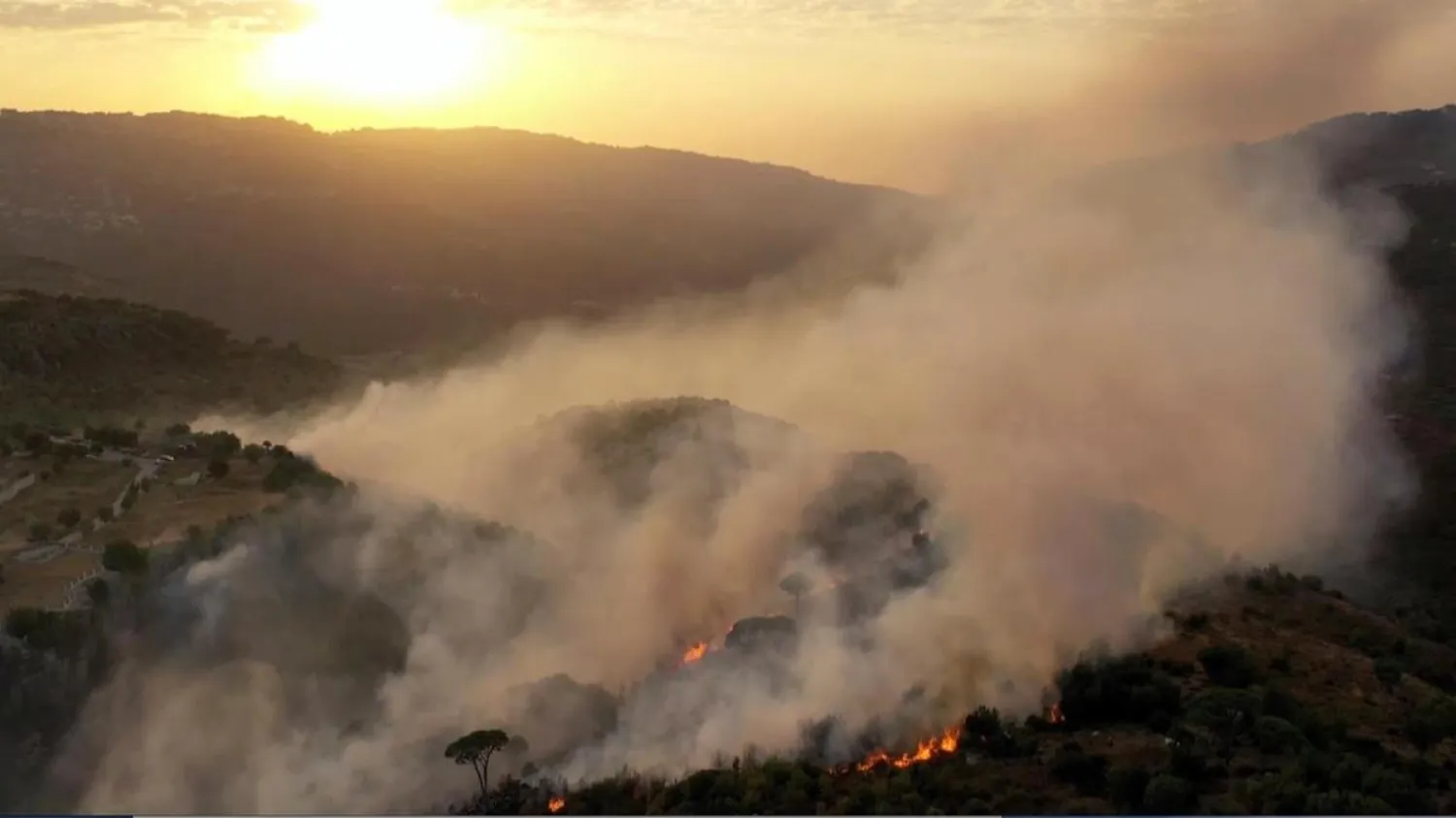Forest fires in Syria and neighboring Lebanon have killed three people and burned swathes of land since Thursday, state media and officials said.
Syrian state television on Saturday morning broadcast scenes from the affected areas, where firefighters were working to extinguish the blazes.
It said hundreds of hectares had burned in the countryside of Syria's coastal Latakia and Tartus provinces, and in the central Homs province.
The health ministry said three people had died in Latakia province since Friday as a result of the fires, and that 70 people were taken to hospital suffering breathing difficulties.
Dozens of fires were burning, including "45 in Latakia and 33 in Tartus", Syria's Agriculture Minister Mohammed Hassan Qatana told a radio station late Friday.
The Latakia fire brigade said they were "facing the largest series of fires seen in Latakia province in years".
Official news agency SANA said fire burned homes in Banias, in Tartus province.
In neighboring Lebanon, there have been more than 100 fires across the country since Thursday, according to George Abu Musa, head of operations for the country's civil defense.
"The situation is crazy, there are fires everywhere," Abu Musa told AFP.
"We have mobilized 80 percent of our personnel and almost all our centers in Lebanon," he said.
He said most of the blazes had been extinguished but some were still burning in the mountainous Chouf region in the south, and in Akkar in the north.
Military helicopters were assisting firefighters in "hard-to-reach" areas, he added.
Abu Musa was unable to identify the cause of the blazes, but said wind and high temperatures were helping them spread.
On Friday, authorities reported several fires across northern and central Israel and the occupied West Bank as temperatures soared, forcing thousands to evacuate.
Dozens of fires hit Lebanon in mid-October last year, amid unusually high temperatures and strong winds.
The government faced heavy criticism and accusations of ill-preparedness over its response to the 2019 blazes.
Days after Lebanon's 2019 fires, mass protests broke out, triggered by proposed tax hikes but quickly transforming into months-long demonstrations against the ruling class, deemed by protesters as inept and corrupt.









